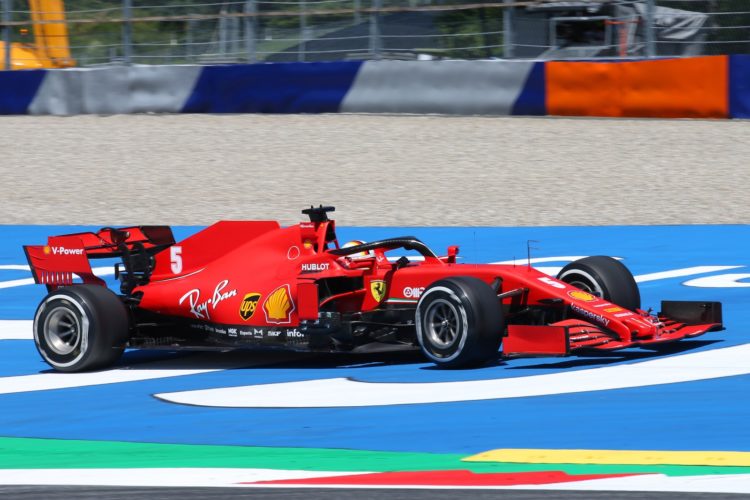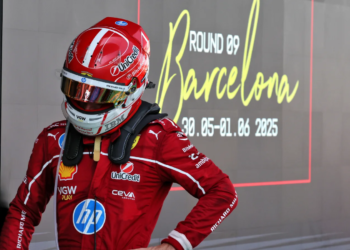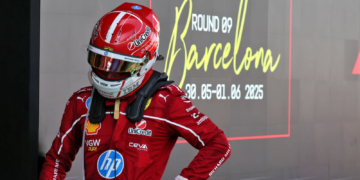Ferrari faces a “long road” to recovery in Formula 1, according to the championship’s Managing Director Ross Brawn, after a dismal Styrian Grand Prix weekend.
Ferrari struggled for pace at the season-opening round though salvaged a podium courtesy of Charles Leclerc.
Boss Mattia Binotto suggested that Ferrari was losing a second per lap, with a 70-30 split between power and aerodynamics, and pushed for updated components to be brought to the second round.
Ferrari’s drivers expressed encouragement over the SF1000’s speed on high fuel runs in Friday practice but in Saturday’s wet qualifying session the team was off the pace again.
On the opening lap of the race Leclerc ran into the back of team-mate Sebastian Vettel, causing terminal damage to both cars, marking the second time they have clashed in just four races.
It leaves Ferrari in fifth place in the Constructors’ Championship, 61 points behind Mercedes, which has won both races in 2020.
“It was a race weekend to forget for Ferrari, with their drivers committing a cardinal sin by colliding and forcing both cars out of the race in the opening laps,” said Brawn.
“As a team boss, you never want to see that happen, but this will hurt Ferrari even more given they had worked hard to bring their upgraded aerodynamic package to Austria a week ahead of schedule – and the collision between Sebastian and Charles has robbed them of a chance to analyse the new package.
“Charles was very good in accepting the blame for the accident but it doesn’t help. That said, it’s sport and these things can happen – and now it looks like the engineers back at the factory have a lot of work to do.
“One of the biggest problems for Ferrari is that of all the teams on the grid, they come under the closest scrutiny from the media, particularly in Italy.
“I know from my own experience that the media pressure in Italy can be incredibly intense, and you have to make sure it doesn’t get to your people.
“The management have to cope with it and make sure the staff maintain the faith and stay focused on what needs to be done.
“They aren’t going to turn it around overnight, and there’s a long road ahead of them. They need to find out if there is a fundamental problem with the car – and they need to find out fast – because clearly they are some way off the pace.”









